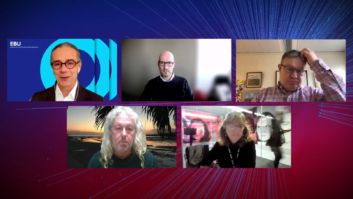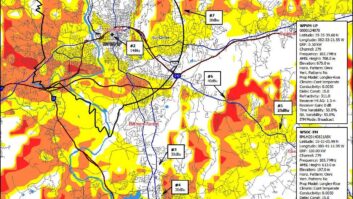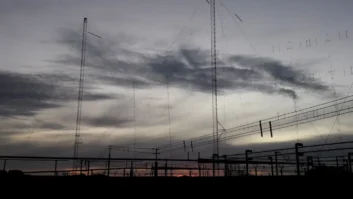Digital Radio Update – June 20, 2007
Jun 20, 2007 9:00 AM, By Mark Krieger, CBT
Stay up to date on the latest IBOC news, business and technology information with the twice-monthly newsletter from Radio magazine.
Index:
- Congress to Executives on Sirius/XM Merger: Just Say No
- DAB Auditions in Ireland
- Tober Joins Ibiquity
- IBOC by State: Idaho
- Radio’s Ongoing Image Problem
- An introduction to the new language surrounding HD Radio
- Mini Maximizes with OEM HD Radio Option
- Sangean Adds High End Component HD Tuner to Lineup
- New DAB+/DMB Module from Etherwaves
To receive these articles twice a month in your e-mail, subscribe to the Digital Radio Update – Insight to IBOC e-newsletter. Click here to subscribe.
News

Congress to Executives on Sirius/XM Merger: Just Say No
Washington – Jun 18, 2007 – A group of 72 congressmen signed a letter that was sent to Attorney General Alberto Gonzales, Federal Communications Commission Chairman Kevin Martin and Federal Trade Commission Chairman Deborah Platt Majors. The focus of the letter states that the proposed XM/Sirius transaction would harm consumers. The prime authors of the letter are Representatives Gene Green (D-TX) and Jim Sensenbrenner (R-WI).
The letter begins by repeating the existing FCC Rules that stipulate that one entity could not own both satellite radio licenses. From there, the letter states many of the already publicized arguments relating to antitrust issues, robust competition of two providers and faults of both providers relating to FCC rules.
Citing concerns about consumer protection and noting both companies’ previous compliance issues with FCC regulations, the letter calls on the FCC, the DOJ, and the FTC to “protect consumers, and protect competition by denying the merger.”
Legislators lending their support to the effort to deny the requested union include a broad cross-section of US representatives from both sides of the aisle and political spectrum, including well-known names such as former House Speaker Denny Hastert (R-IL) and Liberal Presidential hopeful Dennis Kucinich (D-OH).
Read the letter that is posted on Sensenbrenner’s website. The FCC is expected to make its ruling on the case before the end of 2007.
DAB Auditions in Ireland
Eureka 147-based DAB has been quite successful in the UK and now appears to be gaining traction in Ireland, according to www.Digitalradio.ie, a new industry group set up to explore the development and promotion of digital radio on the Emerald Isle.
Since early March, a trial digital radio service carrying the signals of six existing national stations and five Dublin-area stations has been on air in the Greater Dublin and North East areas, with service available to about 36 percent of the national population.
Digitalradio.ie’s current members, 98FM, Digital Audio Productions, FM104, Newstalk 106-108 FM, Phantom 105.2, Q102, RT� Radio, SPIN 1038 and Today FM are all involved in the current effort. The group says it has invited members of the public to tune in, and it plans to conduct a user survey during the trial period.
The move marks the beginning of a collaborative effort by Ireland’s radio sector to move towards digital radio delivery. Though all channels carried in the current trial are available via analog signals, Digitalradio.ie plans to air trials of a range of new DAB-only services in the very near future. Those living in the test area with a DAB digital radio can listen to the 11 existing services listed above and the new DAB-only services as they begin airing later this summer.
The two DAB Block 12c multiplex signals, centered at 237.360MHz, are currently operating from transmission sites in Three Rock and Clermont Carn.
Business
Tober Joins Ibiquity
Ibiquity Digital has hired Kelly Tober to be the company’s new broadcast marketing manager. In her new role, Tober will work with HD Radio broadcasters supporting their local market programs, on-air presence, web promotions and trade shows.
Tober will be moving from her position as promotions director at Clear Channel Radio’s Big 100.3, an HD Radio station in the Washington, DC, market. Tober also served as an account executive with WMAL-AM, and has a background in promotions, marketing and sales.
IBOC Across America
IBOC by State: Idaho
Ibiquity has a list of stations that have licensed HD Radio technology and notes those that are on the air now. IBOC by state looks at various states and list the stations that are making the transition. There are four stations in Idaho broadcasting four HD Radio channels
MarketStationFormatOwner Boise, IDKBOI-AM 670News/TalkCitadel Sun Valley, IDKBSS-FM 91.1NPR/TalkBoise State University Boise, IDKBSU-FM 90.3ClassicalBoise State University Boise, IDKBSX-FM 91.5NPR/TalkBoise State University
Eye on IBOC
Radio’s Ongoing Image Problem
A June 12 article in the New York Times entitled “Big Radio Makes a Grab for Internet Listeners” presents a telling look at how other media popularly portray the radio industry as it transforms for survival in an age of ubiquitous digital media. Referring to netcasting as “the other digital radio” the Times article depicts radio broadcasting in 2007 as an industry dominated by corporate giants aiming to squash “mom and pop” online broadcasters already reeling from disproportionate royalty rate decisions recently rendered by the CRB.
Likewise, the music industry, apparently unsatisfied with a promised bounty from online programmers, is now preparing America for its next gambit: per-performance royalties to be levied on digital music broadcasts. Assailing “Big Corporate Radio” as nothing more than an industry of chiselers who refuse to pay their fair share to struggling recording artists, the RIAA has enlisted some well known performers to assist them in painting radio as a medium comprised of fat corporate leviathans, well able to afford paying a fee for every song they play on their HD1 channel, and their HD2 channel, and their…well, you get the picture.
Nowhere do we hear about radio stations owned by small local or regional operators who are investing in very expensive digital transmission technology with no immediate hope of a positive ROI, or about the thousands of public and non-commercial radio stations struggling to pay higher operating costs, meet onerous new streaming reporting requirements, and remain relevant to an increasingly fragmented audience base.
It’s time for broadcasters to make individual efforts to get their side of the story out. American consumers need to know that an overwhelming majority of radio stations are not owned by Clear Channel, CBS, or other large media conglomerates. They need to know that radio was the driving force behind the recording industry’s meteoric financial success in the latter half of the 20th century. They need to know that broadcasters are making huge investments in digital infrastructure, with its attendant consumer benefits, in a platform that is truly wireless, never charges an access or subscription fee, and in the majority of cases, is still fully grounded within their community.
Charges that our medium became fat, complacent, and turned its back on innovation and its collective responsibilities are far from groundless. Plenty of mistakes were made, both at the industry and policy level. But current trends point to a significant change in direction…and much of it for the better. It’s time for broadcasters to take an active hand in reacquainting our nation with radio, and to demonstrate just how competitive it can be in a digital age.
HD Radio Terminology

An introduction to the new language surrounding HD Radio
convolutional encoding: A form of forward-error-correction channel encoding that inserts coding bits into a continuous stream of information bits to form a predictable structure. Unlike a block encoder, a convolutional encoder has memory; its output is a function of current and previous inputs.
differential encoding: Encoding process in which signal states are represented as changes to succeeding values rather than absolute values.
Products
Mini Maximizes with OEM HD Radio Option
The popular Mini Cooper will pack big HD Radio sound into its compact chassis as a factory-installed digital HD Radio receiver option arrives for Mini Cooper and Cooper S hardtops produced in June 2007 and beyond. Mini joins its sister brand, BMW to be only one of two automotive brands now offering HD Radio technology to its customers.
The HD multicast-capable receivers can be ordered as a stand-alone option for an MSRP of $500 or as part of Mini’s $1,400 deluxe audio package that combines HD Radio with high performance components and Sirius Satellite capability along with a lifetime subscription for the vehicle.
Mini USA operates as a business unit of BMW of North America, LLC.
Sangean Adds High End Component HD Tuner to Lineup
Sangean is beefing up its HD Radio product line with a built-out version of its first production HD Radio component tuner. Priced at $249.99, the company says the new HDT-1X tuner will complement, not replace, the current HDT-1 model.
Among the HDT-1X’s new features are:
- SP/DIF optical digital outputs.
- Switchable Analog-only receive mode.
- Split analog/digital mode that allows simultaneous L/R comparison of analog and digital signals for fine adjustment of analog delay.
- Rack mount adaptors
Sangean says it is now taking product orders and expects to begin shipping the HDT-1X within a matter of weeks.
New DAB+/DMB Module from Etherwaves
Israeli-based developer Etherwaves has announced the launch of Juliet, a new modular platform designed to deliver DAB+ and T-DMB functionality for consumer receiver manufacturers.
According to a company press release, the Juliet product requires only power, an antenna input, and audio stages to provide a Eureka 147 DAB, DAB+ and T-DMB compatible receiver functionality, allowing manufacturers to easily integrate the product into existing or new product lines.
Etherwaves says Juliet is built around an Analog Device BF532 DSP and supports MP3/WMA/AAC player functions along with digital recording/playback via SD Flash RAM, SP/DIF digital outputs, and clock-radio features.
A spokesperson says the company is currently “seeking to partner with manufacturers and importers whose end products are distributed in Europe, Korea and in Australia.”












